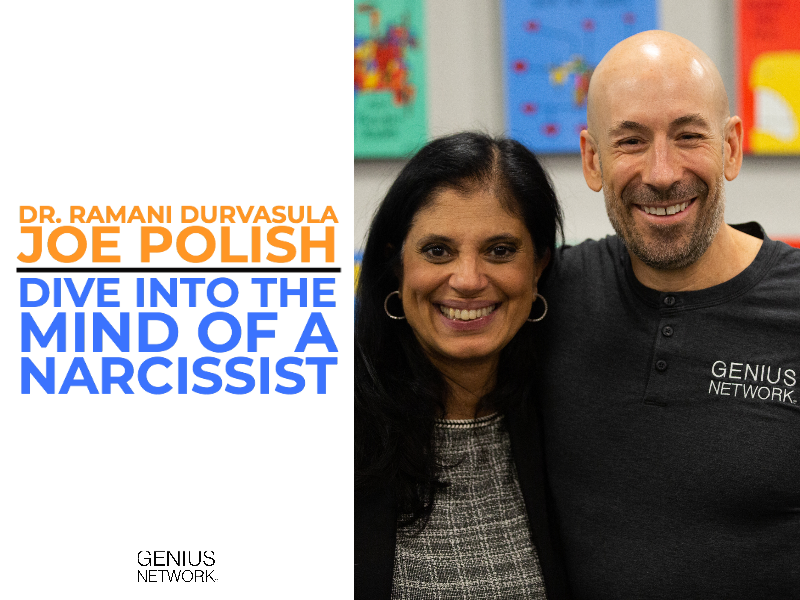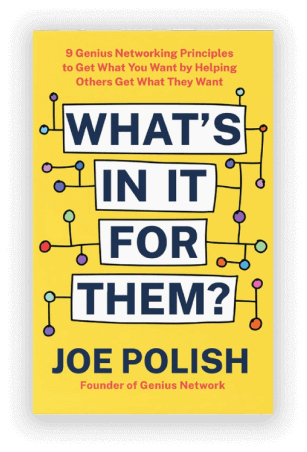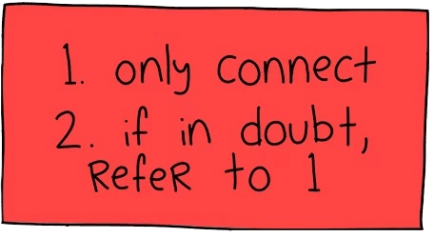
Don’t You Know Who I Am? A Deep Dive Into The Mind of A Narcissist Featuring Dr. Ramani Durvasula with Joe Polish #157
Episode Summary
What goes on in the mind of a narcissist? Dr. Ramani Durvasula, a renowned clinical Psychologist, media expert, and Author shares what you need to know about narcissism.
Dr. Ramani Durvasula knows narcissism. From how to identify it in yourself or others, to setting boundaries, practicing radical acceptance, and keeping realistic expectations, she knows what it takes to keep yourself protected and actively recover from the damage narcissism can cause.
In this episode, Dr. Durvasula shares why she considers narcissism the “second-hand smoke of mental illness” and teaches how to stay sane and grounded when you communicate with a narcissist – whether they be your colleague, partner, family member, or friend.
If you’d like to join world-renowned Entrepreneurs at the next Genius Network Event or want to learn more about Genius Network, go to www.GeniusNetwork.com.
Here’s a glance at what you’ll learn from Dr. Ramani in this episode:
- Why she focused her research on Narcissism versus other areas of mental health.
- The differences between Narcissism (there are 5 types), Narcissistic Personality Disorder (NPD), Psychopathy, and Sociopathy.
- Why personal development “gurus” with the biggest followings could be the most dangerous and damaging.
- How to identify if you or someone you know is a narcissist (and why a narcissist will likely never have true intimacy).
- Exactly what to do if you’re in a relationship with a narcissist such as a significant other, family member, colleague, etc.
- The importance of boundaries, ‘radical acceptance’ and ‘realistic expectations’ when it comes to narcissists.
- Why Dr. Ramani calls Narcissism “The Second Hand Smoke of Mental Illness” (and what to do to avoid becoming “sick”).
- Narcissistic Supply: What you need to understand about narcissists to save yourself headaches and heartaches.
- The three paths children tend to go down when they are raised by a narcissistic parent or parents.
- The connection between Narcissism, Corrective Emotional Experiences, and Sensory Integration.
- How to turn knowledge into healthy boundaries so you stay sane in the throes of a narcissist.
- Why severing ties with a narcissist (even if they are your parent) could potentially save your life.
- The link between narcissism and addiction (What Dr. Ramani discovered working with rehab centers).
- How consumerism, materialism, and social media have bred more incivility in place of empathy.
- The 2 parts to forgiveness almost everyone overlooks (PLUS: Why a narcissist views forgiveness as PERMISSION).
- Dr. Ramani shares her thoughts on the Five-Factor Model and the HEXACO Personality Inventory.
- The difference between pure Borderline Personality Disorder (BPD) and Narcissistic BPD.
- Flying Monkeys: The ONE THING you should do when a narcissist turns other people against you.
- 3 simple steps anyone can take to positively influence young people affected by narcissism.
WHAT'S IN IT FOR THEM?
Get the first chapter for FREE and a limited-time viewing of "Connected: The Joe Polish Story"
Show Notes
- People don’t talk about personality – the elephant in the room.
- In her practice, she found patterns of narcissism but the mental health profession wasn’t touching it.
- She wants to bring her work on narcissism to the masses in a way they can understand.
- She worked with Millenials to figure out how to bring psychology to the masses.
- When the election happened, she had to decide whether to go political or speak to both sides.
- All presidents are narcissists. It’s just the nature of the beast.
- The terming and the forced positivity of the world are a form of mental control; meet a person where they’re at and be empathic instead.
- Narcissism is a lack of empathy, entitlement, grandiosity, arrogance, inability to manage disappointment, validation-seeking, and envy.
- The core is based on deep insecurity – the narcissism acts as a protective barrier.
- There are different kinds of narcissism; malignant, grandiose, covert, noble, and Narcissistic Personality Disorder.
- She guesses that 1 in 3 people are narcissists.
- Narcissists are insecure, a psychopath is not insecure – they’re calm in the most difficult situations.
- Narcissists feel more remorse, psychopaths don’t.
- Sociopaths are created by the environment and are more combative – they’re less successful.
- “Us/Them” discourse can cultivate narcissists.
- Contempt for other people’s feelings is a sign of narcissism.
- She had a client who realized he didn’t have the bandwidth, interest, and capacity to have intimate and romantic relationships.
- Narcissism is made by circumstances of neglect, trauma, inconsistency, chaos, and even spoiling in childhood.
- A lack of safety fuels insecurity and that insecurity fuels unempathetic lashing out.
- Be compassionate to narcissists – then get out of there.
- Gaslighting is when a narcissist denies your reality and makes you feel devalued, invalidated, and downright crazy.
- Narcissists argue better than anyone because they can lift emotion out of situations.
- Don’t engage, don’t defend, don’t explain, and don’t personalize.
- Being near a narcissist will probably make you sick over time.
- Take ownership and have realistic expectations. Use non-violent communication.
- Corrective emotional experiences can rewire a narcissistic brain.
- The three paths of people with narcissistic parent(s): They become anxious, have disorders of dysregulation, and/or become narcissists themselves.
- Children of narcissistic parents can arm themselves with the knowledge to make boundaries and understand what’s going on.
- At the core, narcissism is an emptiness that can’t be filled.
- Narcissists are “disagreeable extroverts”.
- Shift the conversation from what kids do to what they feel.
- Cultivate gratitude daily and change the tone and dance with your kids.
- Flying monkeys are when narcissists pin other people against you.
- Forgiveness is different than letting something go for your own good.
- Forgiveness is viewed as permission for narcissists.





